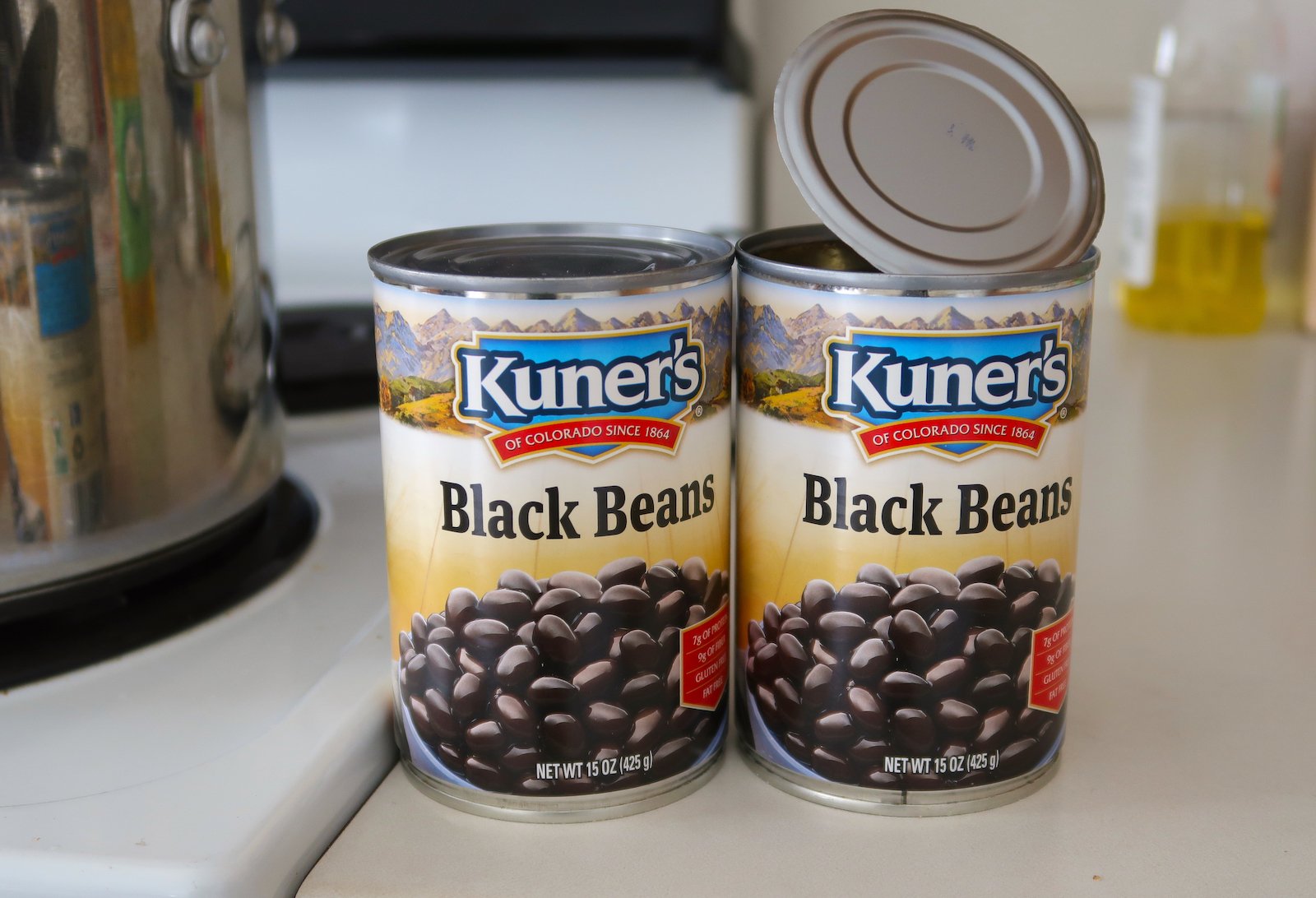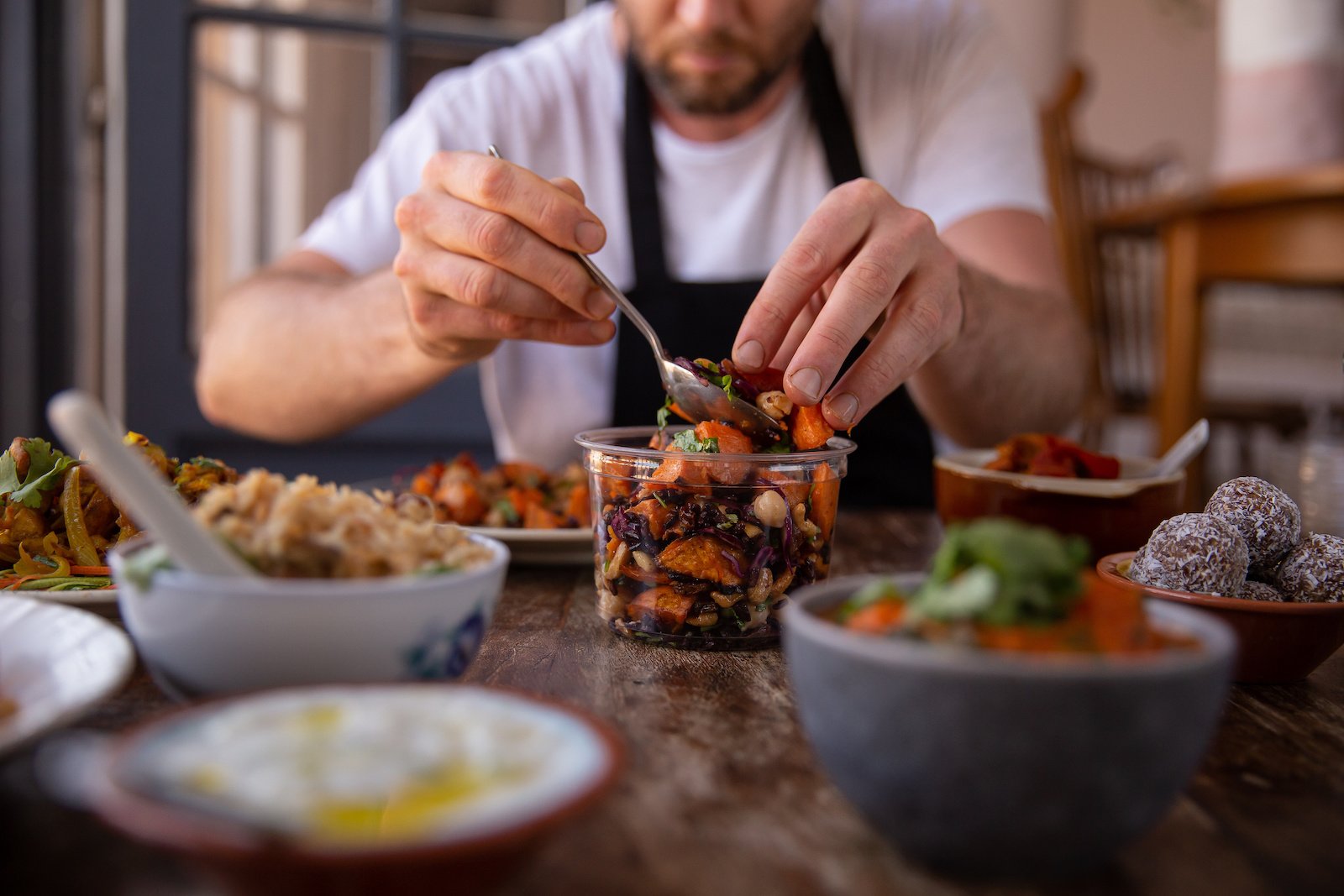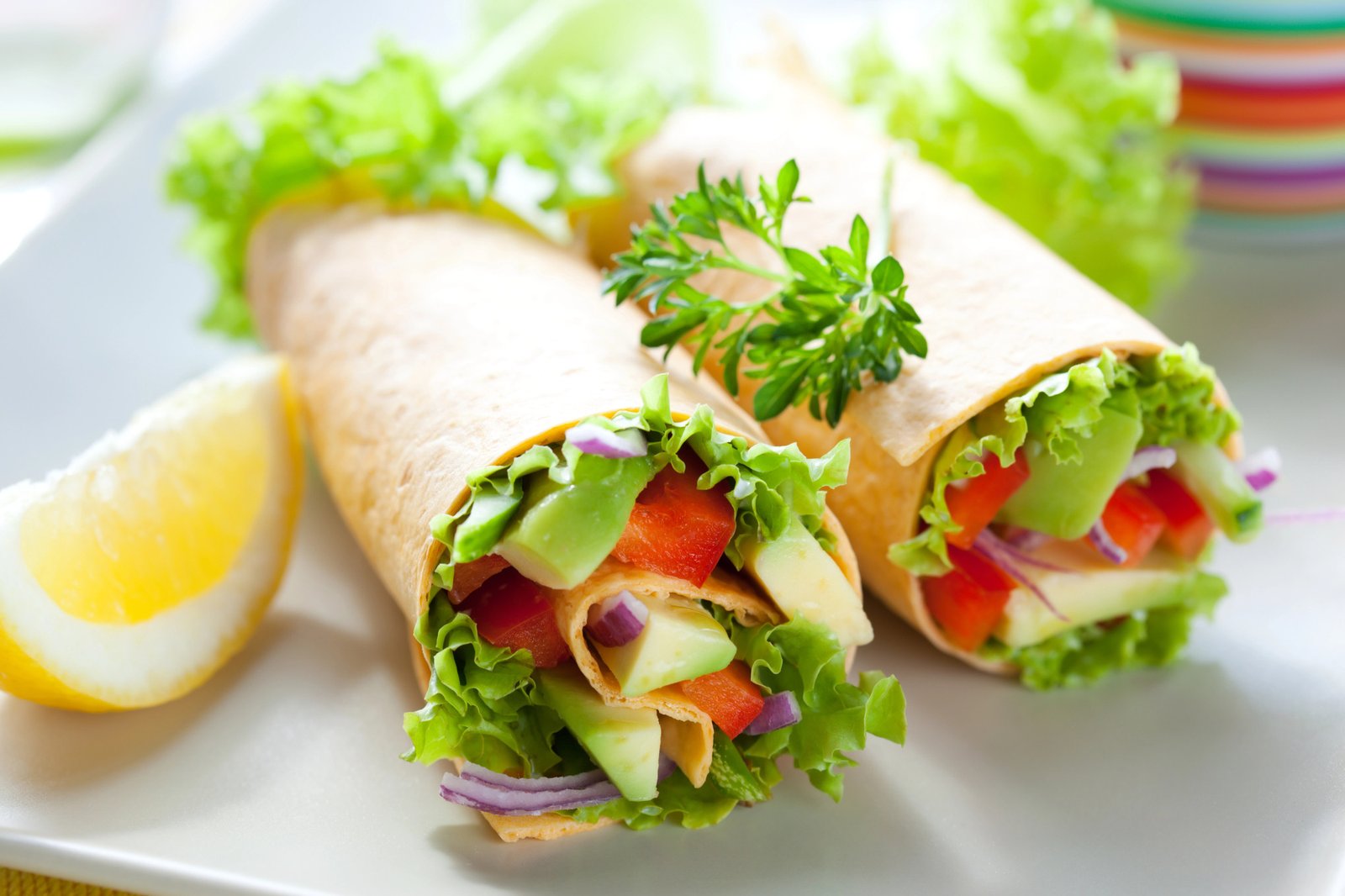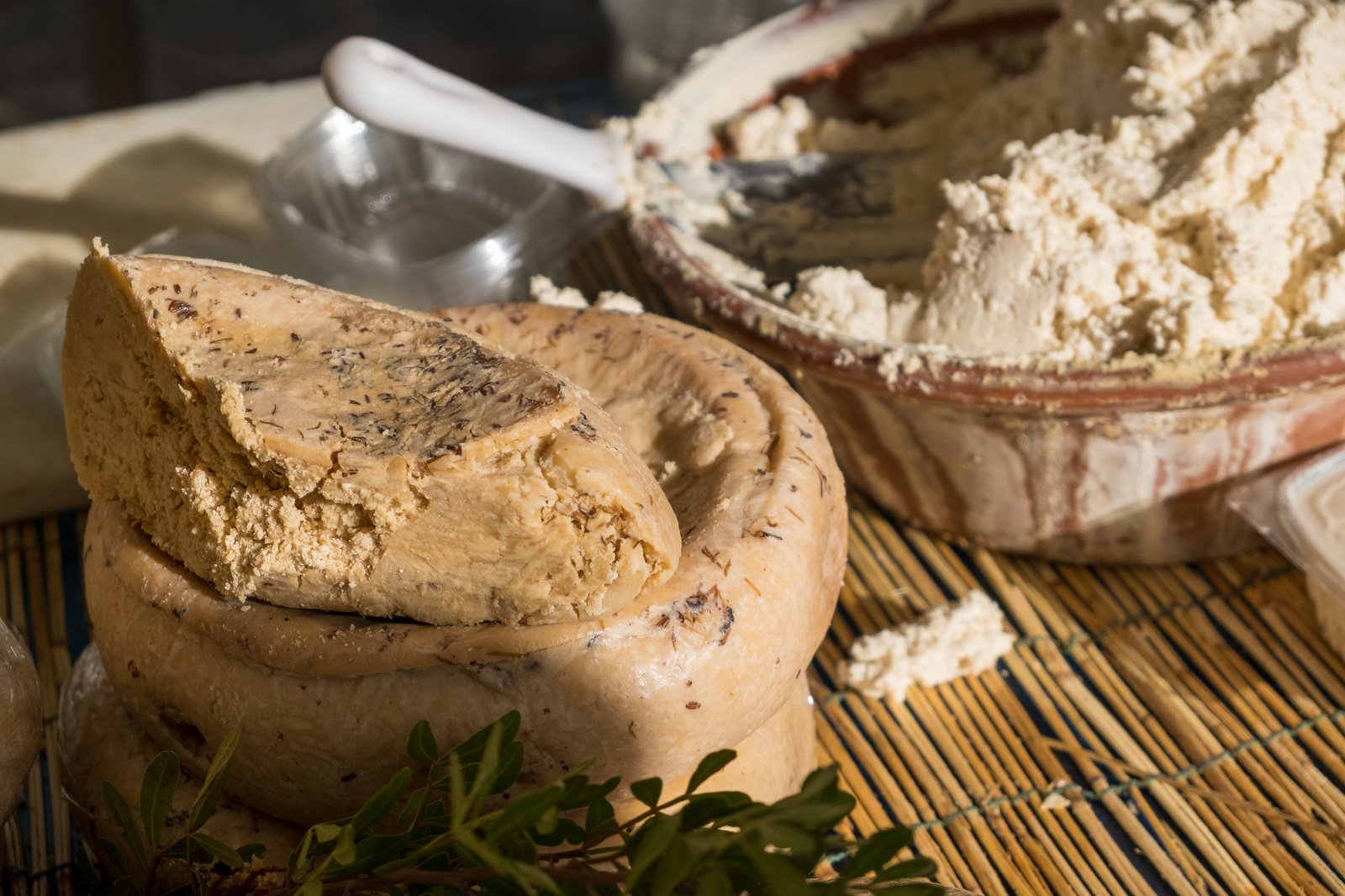Revamping your diet doesn’t have to mean overhauling your entire menu. You can make everyday foods more nutritious and delicious with a few savvy swaps. We have curated a list of clever and simple swaps that will boost your health and flavor without sacrificing convenience. Consider these easy changes and transform your meals into vibrant, wholesome delights. Let’s dive into the list of these tasty upgrades.
Cauliflower Rice over White Rice

Cauliflower rice is a popular and more nutritious alternative to white rice. It is significantly lower in calories (20 calories vs. 210 calories per cup) and carbohydrates (4g net carbs vs. 45g net carbs per cup), making it suitable for those managing weight or blood sugar levels.
Additionally, 1 cup of cauliflower rice contains 2g of fiber, contributing to digestive health. It also provides a substantial amount of potassium (164mg vs. 57mg per cup of white rice), an essential mineral for heart health and muscle function.
Applesauce for Oil

Applesauce can be a great substitute for oil in baking recipes like cakes and brownies. You can use an equal amount when substituting applesauce for oil in cake recipes. For example, if a recipe calls for half a cup of oil, you would use half a cup of applesauce. By making this swap, you can save approximately 900 calories and 110 grams of fat. Applesauce also adds moisture and natural sweetness to your baked goods.
Fresh Herbs and Spices for Salt

Most health guidelines suggest a daily sodium intake of 2,300 milligrams. However, as sodium is present in many processed foods, most people consume far more than this amount.
Reducing your salt intake is essential for heart health. Incorporating fresh herbs and spices like garlic, vinegar, and ground pepper into your cooking can help enhance flavor without relying on excessive salt. Play around with various herbs and spices to develop delicious and wholesome dishes.
Homemade Creamer for Commercial Coffee Creamer

Ditch the store-bought coffee creamer and make your own healthier version. Commercial creamers are often packed with added sugars (up to 5 grams per serving), particularly harmful high-fructose corn syrup. This can contribute to health issues like weight gain, insulin resistance, and other health issues.
These simple homemade alternatives use coconut milk, maple syrup, dates, cashew milk, vanilla extract, etc. The recipes are dairy-free, low in added sugar, and customizable with flavors like cinnamon or pumpkin spice. Enjoy a creamy, flavorful coffee without unhealthy additives with these delicious homemade creamers.
Black Beans for Beef Burgers

Black beans emerge as a healthier alternative to beef. Beef contains 277 calories per 100 grams. Its macronutrient profile is skewed towards protein (38%) and fat (62%), with negligible carbohydrates.
On the other hand, black beans are a plant-based protein source, providing 91 per 100 grams. They offer a more balanced macronutrient profile: 26% protein, 71% carbohydrates, and 3% fat. You can create delicious and satisfying veggie burgers by combining black beans with other ingredients like oats, breadcrumbs, and spices.
Cashew Butter for Heavy Cream

While both cashew butter and heavy cream are calorie-dense, cashew butter emerges as the healthier option. With 587 calories per 100 grams compared to heavy cream’s 340, cashew butter is indeed higher in calories. However, its macronutrient profile is significantly different.
Heavy cream is predominantly fat (94% of calories), with minimal protein and carbohydrates. In contrast, cashew butter offers a more balanced macronutrient ratio, with 11% protein, 18% carbohydrates, and 71% fat. Additionally, heavy cream contains a significantly higher amount of saturated fat (23g per 100g) compared to cashew butter (9.8g per 100g)
Cashew butter offers a creamy texture and rich flavor without heavy cream’s high saturated fat content. It is also a good source of healthy fats and omega-3 fatty acids.
Roasted Chickpeas for Croutons

Roasted chickpeas contain significantly fewer calories than croutons (355 calories vs. 465 calories per 100g). This lower calorie count makes them a better option for those watching their weight or calorie intake. While both can add crunch to your meals, roasted chickpeas are a more nutrient-dense option. They are typically higher in protein (20%) than croutons (9%), which is essential for satiety and overall health.
By choosing roasted chickpeas over croutons, you can enjoy a satisfying crunch while making a healthier choice. To make this crispy alternative, roast them with your favorite spices and herbs.
Crumbled Tofu for Ricotta Cheese

While ricotta cheese provides a creamy texture, it’s higher in calories and fat than tofu. Tofu contains 49% fewer calories per 100 grams, making it a lighter option. Moreover, tofu boasts a more favorable macronutrient profile. It’s higher in protein (17g per 100 grams) and lower in fat than ricotta cheese.
While both can add creaminess to dishes, tofu’s lower calorie and fat content and higher protein content make it a healthier choice for many. Adding herbs, spices, and nutritional yeast can enhance the taste and create a delicious vegan option.
Jicama Wraps for Corn Tortillas

Jicama wraps are a gluten-free alternative to corn tortillas. They are made from the root of the jicama plant and offer a crisp and refreshing texture. Jicama wraps are also a good source of fiber and vitamin C.
Jicama wraps are healthier and keto-friendly. With just 8 calories a piece, 2 grams of carbohydrates, and higher fiber content, they are a great alternative to traditional corn tortillas, which contain around 94 calories.
While corn tortillas provide a familiar taste and texture, jicama wraps offer a refreshing crunch and slightly sweet flavor. The ideal choice ultimately depends on personal tastes and dietary objectives.
Nutritional Yeast for Parmesan Cheese

Both nutritional yeast and Parmesan cheese are calorie-dense, but nutritional yeast offers a healthier profile. While Parmesan cheese contains 21% more calories per 100 grams, nutritional yeast provides a 13% higher proportion of protein (40.4 grams per 100 grams vs. 35.8 grams per 100 grams of parmesan cheese ) and a lower fat content. This makes nutritional yeast more balanced and healthier than Parmesan cheese.
Moreover, nutritional yeast is significantly lower in saturated fat than Parmesan cheese. While Parmesan cheese contains 14.9 grams of saturated fat per 100 grams, nutritional yeast has only 1 gram, representing a 93% reduction.
Soda for Kombucha

Swap sugary sodas for the health benefits of kombucha. Due to its high sugar content, soda consumption has been linked to serious health issues such as obesity, diabetes, and heart disease. The amount of sugar in soda can vary significantly by brand—for example, a 12-ounce can of Coca-Cola contains 39 grams of sugar, while an orange soda can pack in as much as 49 grams.
Kombucha, a fermented tea, offers a refreshing and healthier alternative. Packed with probiotics, this fizzy drink supports gut health and overall well-being.
Unflavored kombucha typically contains about 30 calories, 2-3 grams of sugar, and a small amount of caffeine per 8-ounce serving. While kombucha is a great choice, remember that plain water remains the ultimate hydration source.
Zucchini Noodles for Spaghetti or Pasta

Spaghetti squash and zucchini noodles are low-carb alternatives to traditional pasta noodles. One cup of zucchini noodles contains 2.4 grams of net carbs, significantly lower than spaghetti or pasta (40.3 grams per cup). It is a lighter and more nutritious option. Zucchini also helps us get enough fiber (1.1 grams per cup). Studies show that only 1 in 20 Americans get enough fiber, making it a healthier option that will keep you satiated for longer.


